From Merriam-Webster:
A more vivid definition of wonder might be ‘surprised amazement’. I love that. It’s the kind of thing we see in children as they discover the world around them. Surprised amazement. What a joy it is to be there to witness their discoveries—their eyes grow wide, their mouths form a perfect O, and then they smile. At you. Because they want to share their wonderment. It’s too much for them to hold in.
After Rachel Carson was already famous for writing ‘Silent Spring’, making us aware of the many ways we foolishly, often unwittingly, pollute our earth, she wrote an article in Woman’s Home Companion called ‘Help Your Child to Wonder’. Its arc was her own adventures with her nephew, Roger, as they wandered the coast of Maine near her home, during the summer months.
She intended to expand it into a picture book but she died before it could happen. But the story was already there so all Harper and Row, her publishers at the time, had to do was marry the text to a series of photographs suggesting her sojourns with Roger, and a beautiful book was born.
In it, she says,
Exploring nature with your child is largely a matter of becoming receptive to what lies all around you. It is learning again to use your eyes, ears, nostrils, and finger tips, opening up the disused channels of sensory impression
For most of us, knowledge of our world comes largely through sight, yet we look about with such unseeing eyes that we are partially blind. One way to open your eyes is to ask yourself, “What if I had never seen this before? What if I knew I would never see it again?”
Maurice Sendak’s “Where the Wild Things Are” is all about a child’s imagination and sense of wonderment. It’s deliciously scary, yet puts the child in charge. A lonely fearful boy finds his place in an enchanting world and then realizes what he really wants is to go home. (Shades of The Wizard of Oz—another story of wonderment.)
“Max stepped into his private boat and waved goodbye and sailed back over a year and in and out of weeks and through a day and into the night of his very own room where he found his supper waiting for him—and it was still hot.”
But wonderment is not just the child’s realm. We grownups thrive on it. When we find it again, after so many years of missing out on it as we get on with life, the discovery is cause for celebration. (Which, it seems, is what I’m doing here. Celebrating it.)
This next quote is from Willa Cather’s only surviving letter to her partner, Edith Lewis. Cather was notoriously private. She burned most of her correspondence, and specifically wrote in her will that none of it could ever be published. But somehow this one surfaced—a wonder in itself.
(I found this at Brain Pickings, one of my favorite websites for and about artists, writers, and the creative life. Check it out if you haven’t already, but set aside some time. You’ll be there for a while.)
One hour from now, out of your window, I shall see a sight unparalleled — Jupiter and Venus both shining in the golden-rosy sky and both in the West; she not very far above the horizon, and he about mid-way between the zenith and the silvery lady planet. From 5:30 to 6:30 they are of a superb splendor — deepening in color every second, in a still-daylight-sky guiltless of other stars, the moon not up and the sun gone down behind Gap-mountain; those two alone in the whole vault of heaven.
It lasts so about an hour (did last night). Then the Lady, so silvery still, slips down into the clear rose colored glow to be near the departed sun, and imperial Jupiter hangs there alone. He goes down about 8:30. Surely it reminds one of Dante’s “eternal wheels”. I can’t but believe that all that majesty and all that beauty, those fated and unfailing appearances and exits, are something more than mathematics and horrible temperatures. If they are not, then we are the only wonderful things — because we can wonder.
In that same piece, Maria Popova writes more about Cather’s thoughts on the requirements for creativity:
Contemplating the subject of creativity, Cather laments that nothing is more “fatal to the spirit of art” than the rise of what she aptly terms “superficial culture” — the commodification of art not as an instrument of aliveness but as a status symbol, pursued by rich ladies who “run about from one culture club to another studying Italian art out of a textbook and an encyclopedia and believing that they are learning something about it by memorizing a string of facts.” To her, the young black boy on the porch improvising a Verdi opera on his fiddle by ear — with no formal knowledge of what he is playing and no theoretical rationale for why it is so stirring his soul — “has more real understanding of Italian art than these esthetic creatures with a head and a larynx, and no organs that they get any use of, who reel you off the life of Leonardo da Vinci.”
Wonderment is what set Carl Sagan’s ‘Cosmos’ apart from any other program on the stars and the sky and the universe. When the book came out after the TV series, it kept his mission alive: it turns out he was trying to save the earth by creating wonderment. He wanted us to feel something for this tiny blue ball valiantly trying to make a home for us. The last chapter revealed his true motive:
And lastly, I found this from Margaret Atwood. It seemed the perfect way to end this piece on wonderment. It tells me I owe a debt of gratitude to those surroundings, those moments that keep me in a state of enchantment. I didn’t invent them and they don’t exist just for me. They would be there with or without me, but I wouldn’t be me without them.
(I cross-post some of these pieces from time to time at my Medium blog. You can find me there, too. Now and then.)

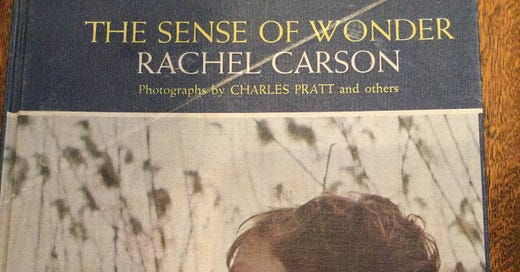

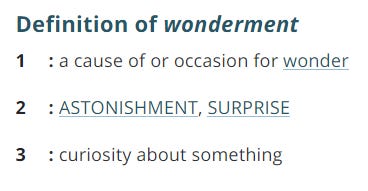


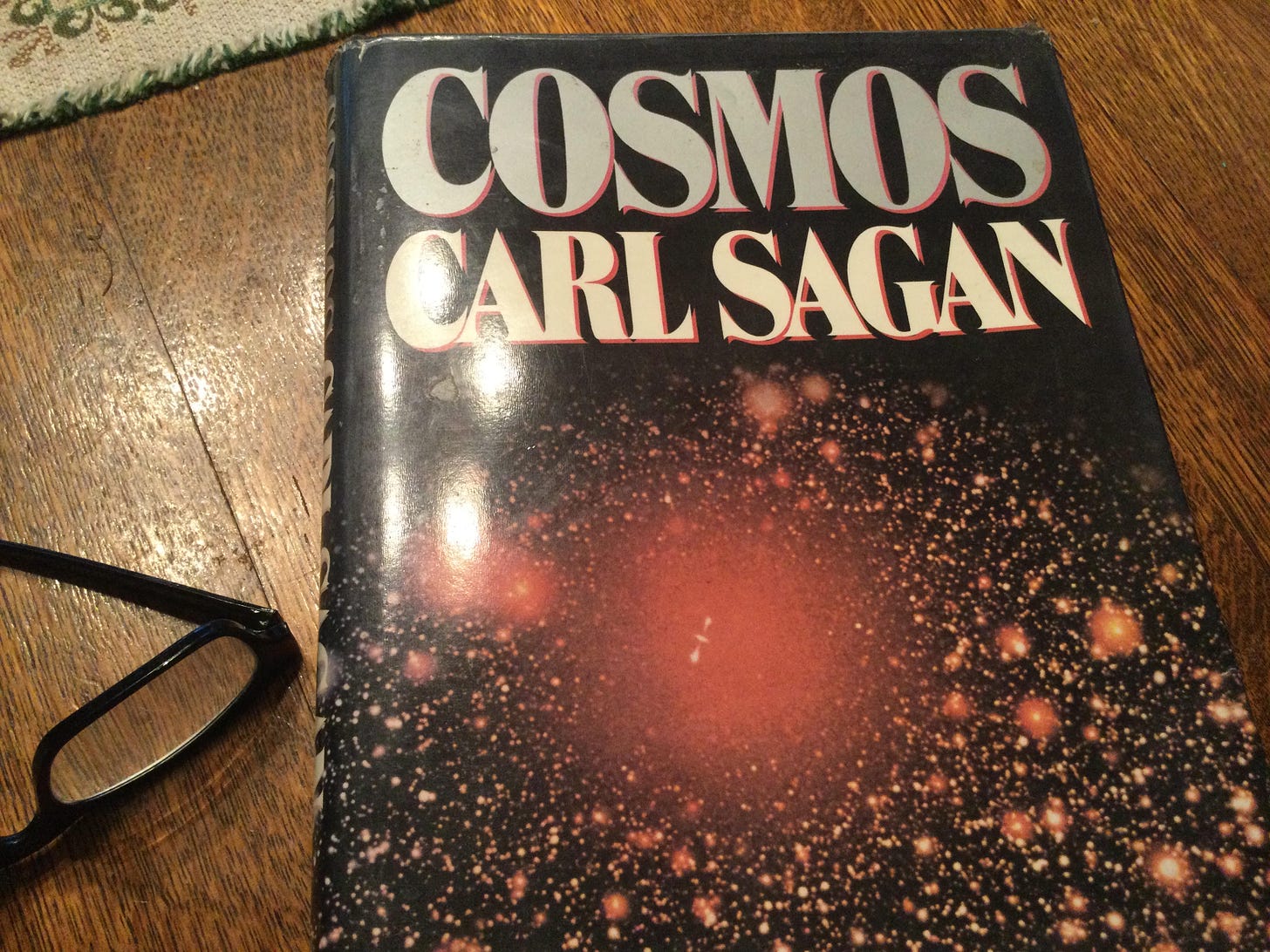
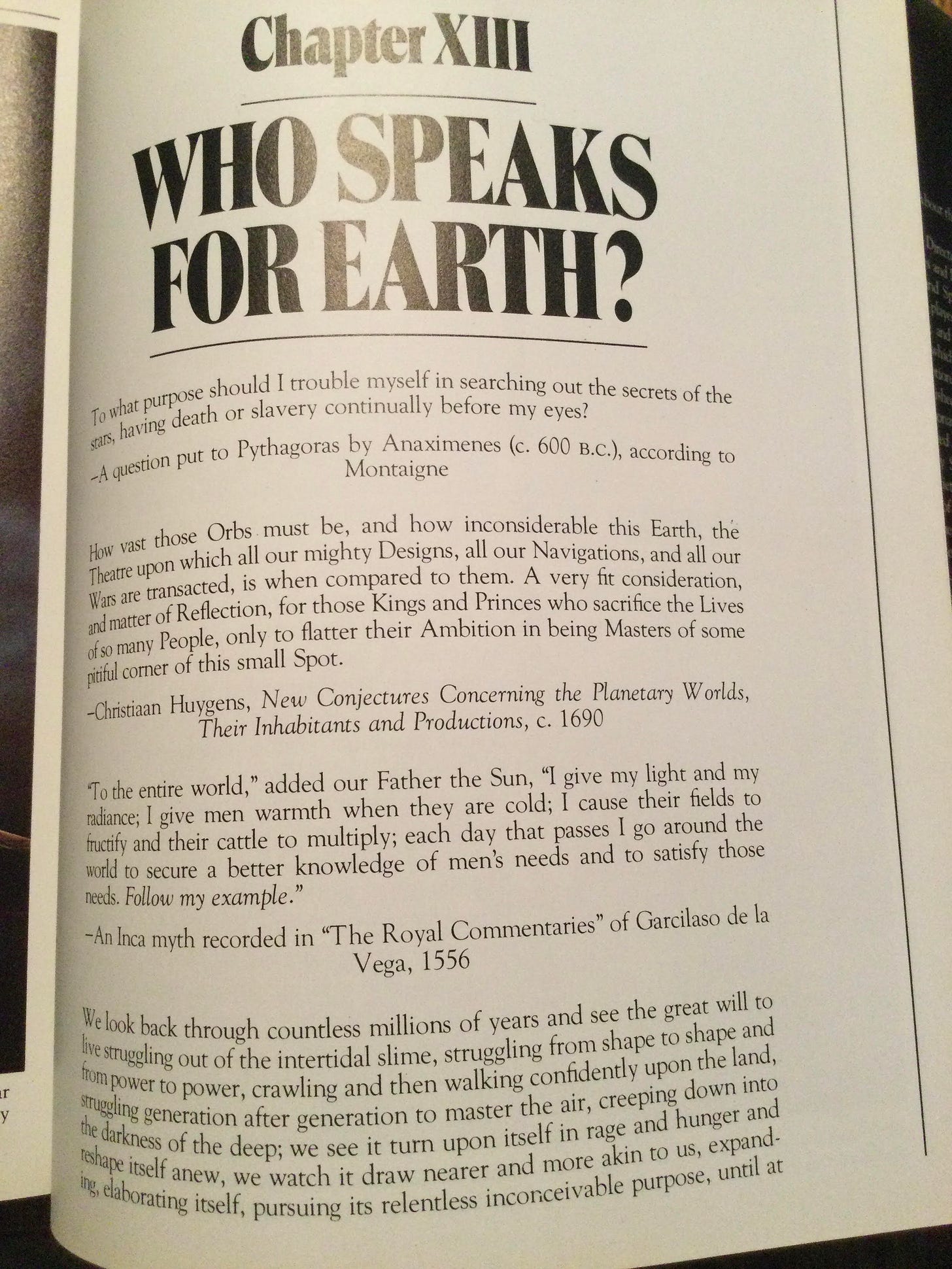
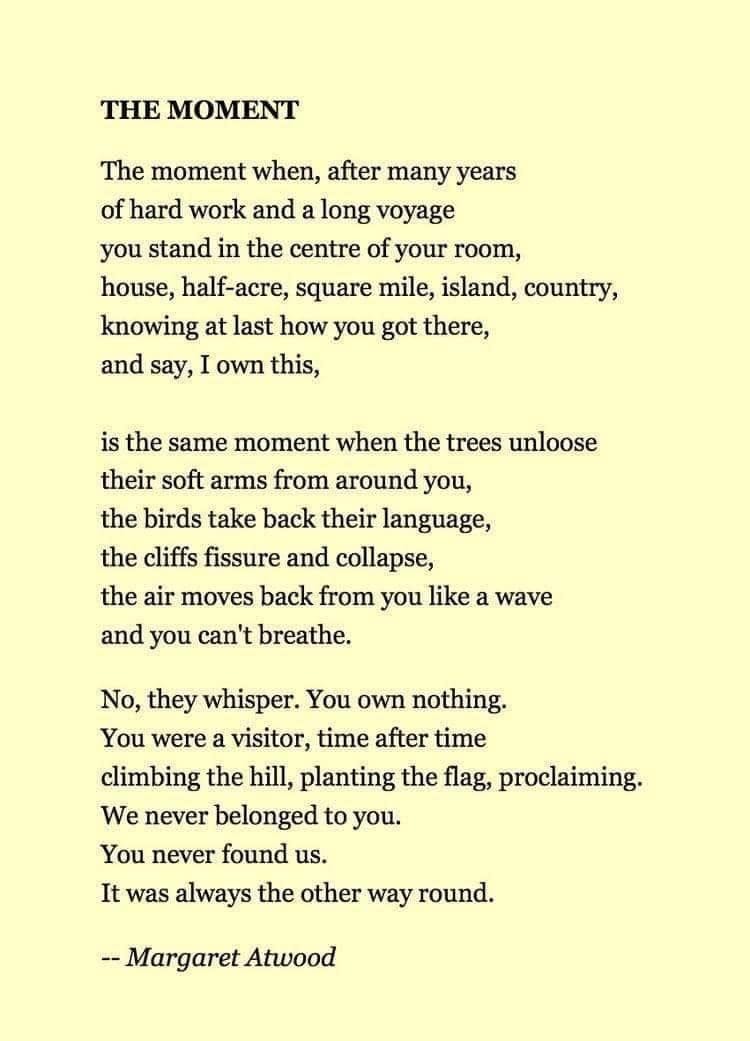
And this is why I still primarily read fantasy literature. I need to believe there is magic peeking at me from behind every leaf and tree as I stumble through my mundane life.
Oh, how I enjoyed this piece. I love the excerpts you pulled from, and just the general idea of noticing and finding joy and beauty in the ordinary. 💕